
Charles John Huffam Dickens was an English novelist and social critic who created some of the world's best-known fictional characters, and is regarded by many as the greatest novelist of the Victorian era. His works enjoyed unprecedented popularity during his lifetime and, by the 20th century, critics and scholars had recognised him as a literary genius. His novels and short stories are widely read today.

John William Polidori was a British writer and physician. He is known for his associations with the Romantic movement and credited by some as the creator of the vampire genre of fantasy fiction. His most successful work was the short story "The Vampyre" (1819), the first published modern vampire story. Although the story was at first erroneously credited to Lord Byron, both Byron and Polidori affirmed that the author was Polidori.

Charles Laughton was a British-American actor. He was trained in London at the Royal Academy of Dramatic Art and first appeared professionally on the stage in 1926. In 1927, he was cast in a play with his future wife Elsa Lanchester, with whom he lived and worked until his death.

A Christmas Carol. In Prose. Being a Ghost Story of Christmas, commonly known as A Christmas Carol, is a novella by Charles Dickens, first published in London by Chapman & Hall in 1843 and illustrated by John Leech. It recounts the story of Ebenezer Scrooge, an elderly miser who is visited by the ghost of his former business partner Jacob Marley and the spirits of Christmas Past, Present and Yet to Come. In the process, Scrooge is transformed into a kinder, gentler man.
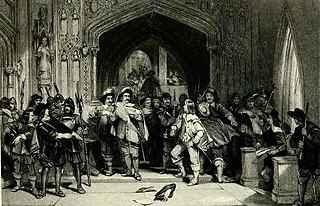
Pride's Purge is the name commonly given to an event that took place on 6 December 1648, when soldiers prevented members of Parliament considered hostile to the New Model Army from entering the House of Commons of England.
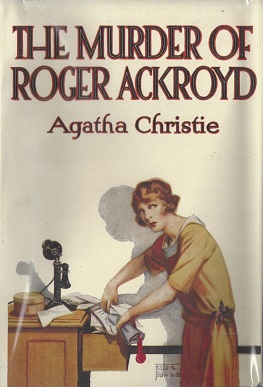
The Murder of Roger Ackroyd is a detective novel by the British writer Agatha Christie, her third to feature Hercule Poirot as the lead detective. The novel was published in the UK in June 1926 by William Collins, Sons, having previously been serialised as Who Killed Ackroyd? between July and September 1925 in the London Evening News. An American edition by Dodd, Mead and Company followed in 1926.
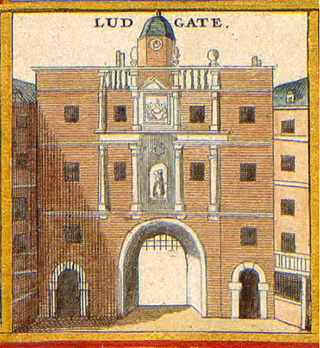
Ludgate was the westernmost gate in London Wall. Of Roman origin, it was rebuilt several times and finally demolished in 1760. The name survives in Ludgate Hill, an eastward continuation of Fleet Street, Ludgate Circus and Ludgate Square.
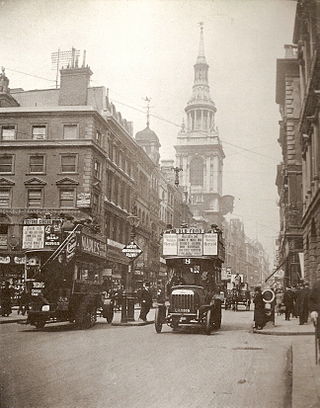
Cheapside is a street in the City of London, the historic and modern financial centre of London, England, which forms part of the A40 London to Fishguard road. It links St. Martin's Le Grand with Poultry. Near its eastern end at Bank junction, where it becomes Poultry, is Mansion House, the Bank of England, and Bank station. To the west is St. Paul's Cathedral, St Paul's tube station and square.
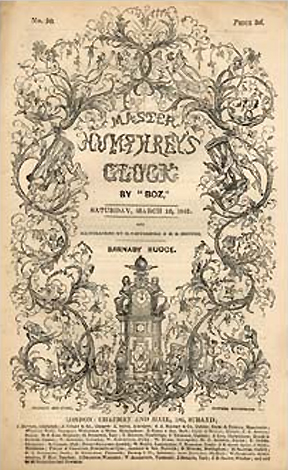
Barnaby Rudge: A Tale of the Riots of Eighty is a historical novel by British novelist Charles Dickens. Barnaby Rudge was one of two novels that Dickens published in his short-lived (1840–1841) weekly serial Master Humphrey's Clock. Barnaby Rudge is largely set during the Gordon Riots of 1780.

Ellen Lawless Ternan, also known as Nelly Ternan or Nelly Wharton-Robinson, was an English actress known for her association with the author Charles Dickens.
Ackroyd is an English surname. Notable people with the surname include:
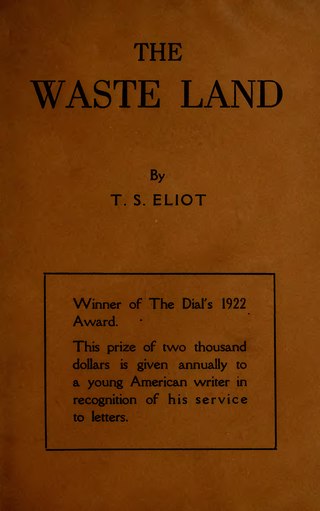
The Waste Land is a poem by T. S. Eliot, widely regarded as one of the most important English-language poems of the 20th century and a central work of modernist poetry. Published in 1922, the 434-line poem first appeared in the United Kingdom in the October issue of Eliot's magazine The Criterion and in the United States in the November issue of The Dial. Among its famous phrases are "April is the cruellest month", "I will show you fear in a handful of dust", and "These fragments I have shored against my ruins".
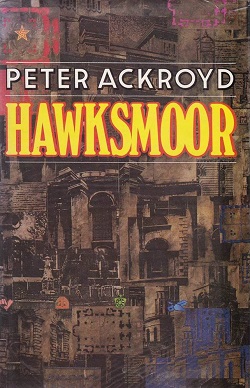
Hawksmoor is a 1985 novel by English writer Peter Ackroyd. It won Best Novel at the 1985 Whitbread Awards and the Guardian Fiction Prize. It tells the parallel stories of Nicholas Dyer, who builds seven churches in 18th-century London for which he needs human sacrifices, and Nicholas Hawksmoor, detective in the 1980s, who investigates murders committed in the same churches. Hawksmoor has been praised as Peter Ackroyd's best novel and an example of postmodernism.
Dora Annie Dickens was the infant daughter of English novelist Charles Dickens and his wife Catherine. She was the ninth of their ten children, and the youngest of their three daughters.

Thomas Raven Ackroyd was an English bank manager and Liberal Party politician.
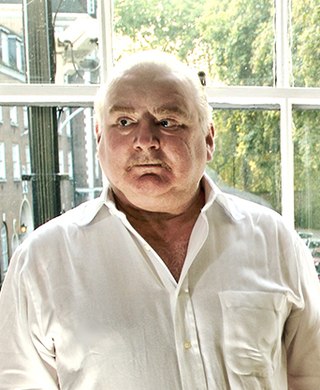
Peter Ackroyd is an English biographer, novelist and critic with a specialist interest in the history and culture of London. For his novels about English history and culture and his biographies of, among others, William Blake, Charles Dickens, T. S. Eliot, Charlie Chaplin and Sir Thomas More, he won the Somerset Maugham Award and two Whitbread Awards. He is noted for the volume of work he has produced, the range of styles therein, his skill at assuming different voices, and the depth of his research.
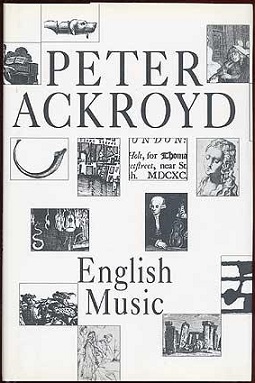
English Music is the sixth novel by Peter Ackroyd. Published in 1992, it is both a bildungsroman and, in the words of critic John Barrell, "partly a series of rhapsodies and meditations on the nature of English culture, written in the styles of various great authors." As with all Ackroyd's previous novels, it focuses on London, although on this occasion partly as a backdrop for English culture in general.

Dan Leno and the Limehouse Golem is a 1994 novel by the English author Peter Ackroyd. It is a murder mystery framed within a story featuring real historical characters, and set in a recreation of Victorian London.
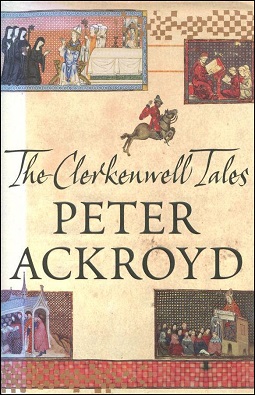
The Clerkenwell Tales is an historical novel by English writer Peter Ackroyd, first published in 2003.
Chatterton is a novel by Peter Ackroyd published on 1 January 1987 by Hamish Hamilton. It was shortlisted for the Booker Prize. It was commercially successful at the time of its publication. The novel is an investigation of the death of Thomas Chatterton. Chatterton had poisoned himself with arsenic when he was seventeen because of his poverty.

















